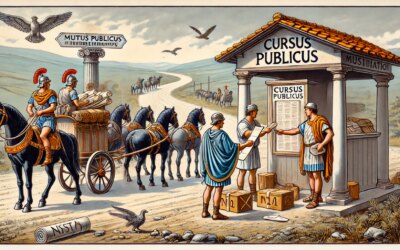Introduction: A Decree That Redefined Rome
In 212 AD, Emperor Caracalla issued a sweeping and unprecedented decree: the Constitutio Antoniniana, also known as the Edict of Caracalla. This legislation extended full Roman citizenship to nearly all free men within the Roman Empire. In a single stroke, the emperor redefined what it meant to be Roman, shifting the legal and cultural foundation of the empire and marking a profound transformation in Roman identity and governance.
Background: Who Was a Roman Citizen?
Before 212 AD, Roman citizenship was a prized status, often reserved for inhabitants of the city of Rome, Italians, veterans, and the elites of Roman colonies and municipalities. Most provincials—particularly those in the vast eastern territories—were peregrini, free individuals without the legal privileges of citizens. Citizenship conferred rights such as legal protection, property ownership, and eligibility for military service and political office.
Caracalla’s Motivations
Marcus Aurelius Severus Antoninus Augustus, known as Caracalla, was not known for altruism. His motivations for issuing the edict were likely practical: he sought to increase tax revenue by expanding the base of citizens subject to taxes like the inheritance tax (vicesima hereditatium) and manumission fees. Additionally, by standardizing legal status across the empire, Caracalla aimed to simplify administration and reinforce loyalty to his rule during a time of military and political instability.
The Edict’s Provisions
The Constitutio Antoniniana declared that all free men in the empire would henceforth be Roman citizens, while all free women would gain the same legal protections as Roman matrons. Exceptions may have applied to certain groups—like dediticii (former enemies of Rome)—but the overall impact was transformative. In a legal sense, the Roman Empire now encompassed a unified citizenry spanning Europe, Africa, and Asia.
Impact on Roman Society
The immediate consequences of the edict were complex. While it eliminated the distinction between citizens and non-citizens, it also diluted the prestige of citizenship, which had long been a marker of elite status. Some legal experts struggled with the sudden influx of citizens who lacked traditional Roman cultural backgrounds. Nevertheless, the edict also promoted integration and inclusivity, allowing provincial elites to more easily assimilate into imperial administration.
Administrative and Cultural Effects
The decree accelerated the Romanization of the provinces, as Latin legal terminology and Roman civic structures spread further. Local elites adopted Roman customs more readily, and the idea of “being Roman” evolved from a geographic or ethnic identity into a legal and cultural one. This shift laid the groundwork for the later Byzantine concept of “Rhomaioi”—Romans as a universal, multicultural identity.
Criticism and Legacy
Some ancient and modern critics have viewed the Constitutio Antoniniana as a cynical ploy for revenue or control. Yet its legacy is immense: it was one of the first attempts in world history to define citizenship as an inclusive, legal construct rather than a narrow ethnic privilege. The edict anticipated modern ideas of civic equality and foreshadowed the evolution of nation-states.
Conclusion: From City-State to Superstate
With the Constitutio Antoniniana, Caracalla changed Rome forever. What began as a small city on the banks of the Tiber had become a vast, diverse empire. By declaring all free subjects as citizens, Caracalla transformed the Roman state into a legal and cultural superstructure that would endure, in one form or another, for centuries. In doing so, he took a critical step toward the globalized, legally integrated societies of the future.






